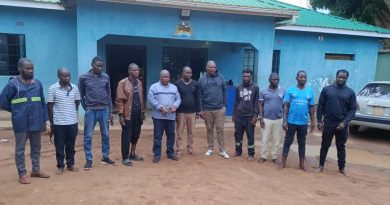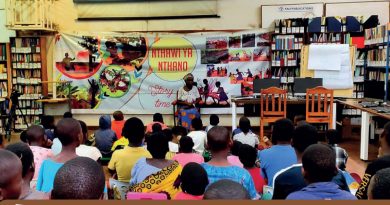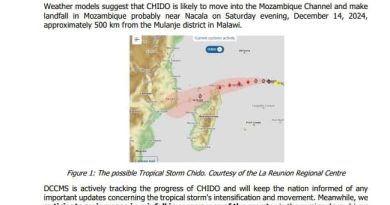Dreams of greatness: Promoting public accountability
Political parties are, arguably, a key component of any given democracy. Once elected into power, these organisations are mandated to form governments. The dream to make Malawi great again, as was envisaged six decades ago, to a greater extent lies with politicians, who after taking oath of office, must make democracy work. Well organized political parties, with structures from the grassroots level to the presidency, are the salt of democracy. Yet these political parties, if badly organized, can kill democracy; they can make governance systems dysfunctional.
Governance experts are deeply concerned with the lack of intraparty democracy in political parties. Party presidents and their inner circles take full control of operations of political parties they lead — in most cases for motives bordering on self-serving. Funding of political parties in Malawi, largely emanates from the party president, a few well-to-do individuals in the party and well-wishers, mostly from the business community. That is why political parties in Malawi are regarded as personal estates of founders or incumbent presidents. It is at this stage where intraparty democracy gets stuck and comes to a standstill. Anything contrary to the wishes of a party president is hot down. Those advancing views contrary to a party president are unceremoniously expelled. Intraparty democracy accommodates varying opinions. These views should not be suppressed no matter how piercing they may be. Democracy is about diversity.
Party leaders have the unsolicited audacity to abuse resources. Few political parties, if any in Malawi, would be willing to have their financial books audited. Here is where lack of accountability begins spreading to all branches of government. Actually, political parties are uncomfortable and at pains to reveal their sources of funding. The secrecy surrounding funding, reeks of sinister motives, shady dealings and undeniably so, instances of corruption.
Yet these are political parties that dream of running the affairs of the state once elected into power. Why should politicians and the political parties they represent be coy about their resources? Whom do they protect? Would public funds be safe in the hands of politicians and political parties that conceal information in light of Access to Information law? But in this time and era, when the president already assented to the ATI law, some officials are still reluctant to comply with this important piece of legislation.
Inspite of the operationalisation of the office of the Registrar of Political Parties in Malawi, political parties have not been complying with its provisions. Among others, the Political Parties Act, bans politicians from giving out handouts and requires parties to disclose their
Honesty must be the guiding principle to those vying for public office; honesty is the best policy. Our politics needs men and women who have strong moral principles. We are reminded of the advent of Cashgate Scandal where politicians, civil servants and businesspersons swindled government out of huge sums of money meant for development projects in key sectors such as education, health and social welfare.
The source of all this is bad politics and a culture of silence where politicians are treated as ‘big men’ whose motives, whatsoever, should not be questioned. This is backed by the “it is our time to eat” notion, which also reminds those outside government to wait for their turn at a given time in future. That is why those vying for influential positions, must be people of high integrity, rights defenders and purveyors of social justice. They should not join politics to enrich themselves. Politics should not be their source of survival. Politics ought to be a service.
Demands for greater democracy
Our central theme as we reflect on the five years of the Tonse Alliance government should be “upholding the rule of law and justice for all.” While ordinary Malawians, donors and rights activist, had pinned so much hope in the Lazarus Chakwera administration, the painful reality is that governance has been one of this administration’s big let downs.
Sadly, systemic attempts to silence the media, opposition parties and civil society organisations, defeat the spirit of holding leaders accountable and maintaining trust of the people through open, accountable and transparent government and informed democratic choice. No one should be seen to be above the law; those in power should remember that close to five years ago, they were in opposition and complained about the very blunders they are making right now.
Gross violation of people’s rights for 30 years is one of the reasons Malawians used the ballot to vote the Malawi Congress Party (MCP) out of government in 1994. The MCP of today should not take Malawians for granted and think that threats will save the day. This is a democratic dispensation where rights and freedoms are granted by the supreme law of the land.
We vividly recall how some people — belonging to the opposition Democratic Progressive Party (DPP) were rounded up at Mbobe Filling Station in Lilongwe by some thugs who did the unthinkable. On a mission to spill blood, these hoodlums attacked unsuspecting DPP supporters and had their vehicles extensively damaged. By the time onlookers and sympathisers were asking, what was happening, scores were mourning in pain, bleeding and asking for medical attention. So far, we don’t recall the police announcing that they have arrested suspects. This is not democracy. Prior to that, opposition parties’ supporters were harassed in some districts in Central Region. No one is taking action; no one seems to care. Yet we are heading towards an election year, where instances of political violence become rampant. Leaders should be seen to be condemning violence.
We therefore demand greater freedoms and democracy. This is not a one-party state or a dictatorship. We say no to political violence. Let those who attacked DPP supporters in Lilongwe be brought to book and face the long arm of the law. Likewise, if there are any supporters belonging to opposition parties who are guilty of perpetuating violence, they equally should be thoroughly investigated, and if need be, get arrested. Selective justice is a serious threat to unity and co-existence. Stop protecting thugs because they are sympathisers of those in power.
Conclusion
The position we advocate for is simple: let us build a Malawi that promotes justice, integrity, coexistence, and transparency and accountability. Malawians want political parties that have the welfare of the people at heart – especially the poor and the less privileged, who cannot afford three meals a day. These are people whose problems have worsened in view of the hunger that has affected over four million people across the country.
Finally, we at The Lamp magazine would like to join hands with all electoral stakeholders in urging Malawians to go and register to enable them vote in next year’s general elections. Those who don’t vote help to elect bad leaders. It is your constitutional right to register and elect leaders of your choice; leaders who can transform Malawi.




